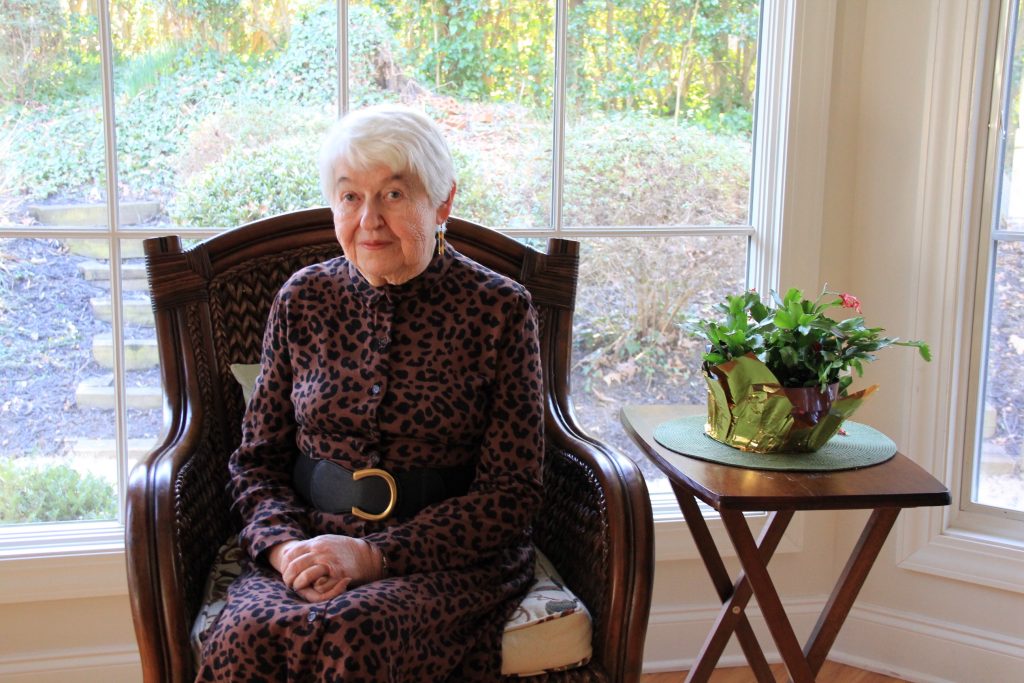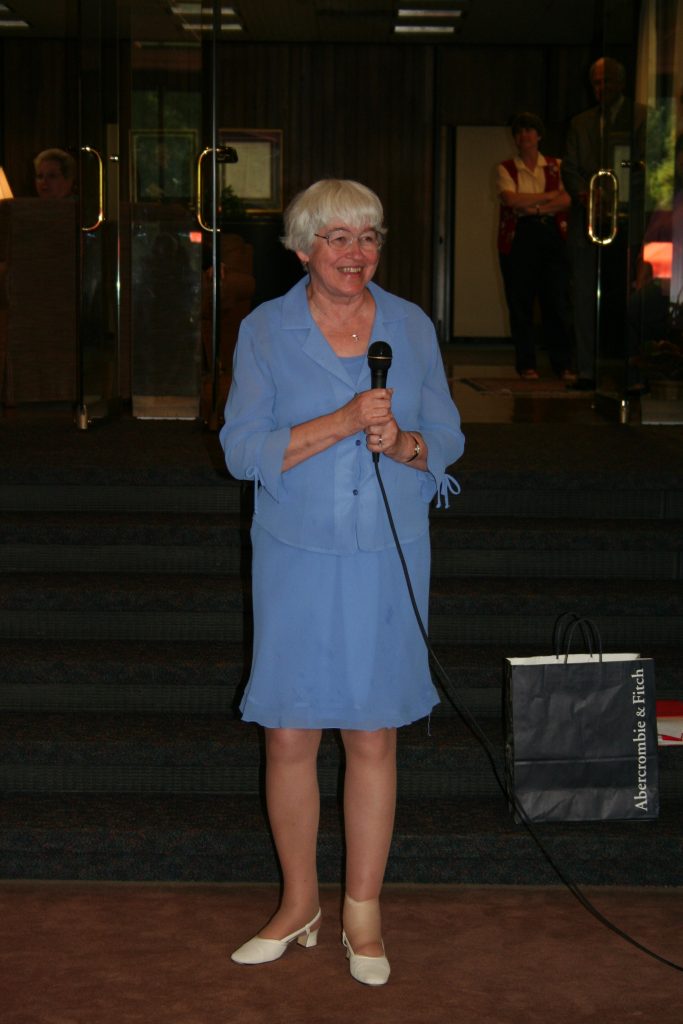 When it comes to Clemson Libraries, Peggy Cover has seen it all. That’s because she worked in the Libraries for 41 years.
When it comes to Clemson Libraries, Peggy Cover has seen it all. That’s because she worked in the Libraries for 41 years.
Cover grew up just down the road from Clemson in Central. She left home to attend Blue Mountain College in Mississippi, where she earned a bachelor’s degree in mathematics. She felt like her career options with a mathematics degree were limited, so she decided to pursue a master’s in library and information science, which she earned at the University of Illinois.
Her interest in libraries started early in her life, and in high school she was a member of the Library Club and volunteered as an assistant in the school library. She also worked as a student assistant in the library at Blue Mountain.
“I liked doing research, but I didn’t like writing papers. I just liked the research part,” she said. “I enjoyed helping people find information.”
After finishing graduate school, she got a job offer at Clemson. She said it was the best offer she got, so she returned home to South Carolina. Cover’s career at Clemson began in 1965 before Cooper Library was even open. She spent her first year working in the library when it was located in Sikes Hall, a building she said the Libraries had clearly outgrown.
“We had no space whatsoever in Sikes, so when we moved into Cooper, we thought we would never run out of space,” she said.
When Cooper Library first opened, it had only three floors and an unfinished basement. Over the next few years, the basement was finished and two more floors were added. Cover was there through it all, as Cooper grew in space and capacity. She remembers when librarians were granted faculty status, which she said helped with recruiting new librarians. She was also a witness to the technological growth in the Libraries.
“When I was in library school in 1964, they talked and talked about a ‘paperless society.’ We’re just now getting there,” she said. “That change didn’t come as fast as they talked about it.”

Peggy Cover speaks at her retirement reception in 2006.
Cover remembers when the first two computers were added to Cooper Library. She felt like Clemson Libraries was on the leading edge of changes in the field at the time.
“We were among the first libraries to computerize our system,” she said. “To truly embrace change, you have to be a part of it.”
Cover started her career at Clemson as a science librarian.
“When I was starting out, Clemson was beginning to grow and add a lot of master’s Ph.D. programs. One of my jobs that I enjoyed very much was working with the faculty to build our collections to support those new programs. I guess that’s why we ran out of space — we added all those new books, journals and journal backfiles. It was an exciting time,” she said.
She rose through the ranks and became head of the Libraries’ reference unit, a position she held for many years. One of her favorite things was managing people and giving her faculty and staff professional development opportunities.
“I think I was known for my staff meetings,” she said. “We just talked about everything, and everyone had a voice. I wanted to get everybody’s view.”
Her career at Clemson spanned the tenure of seven University presidents, from R.C. Edwards to Jim Barker. During her career, approximately 75,000 students graduated from Clemson — about 43 percent of the University’s total number of living alumni. Tens of thousands of students, faculty, staff and community patrons benefitted from her work over four decades, and even in her retirement, she continues to make an impact on the Libraries. In 2006, she established the Peggy H. Cover Library Book Endowment to provide support to purchase materials for the Libraries’ collections.
“I was always happy whenever anyone made a gift to the library, so I wanted to also leave that legacy,” she said. “I wanted the library to be able to purchase any kind of reference materials or other items for collections, whatever the library needs.”
Since her retirement, Cover has enjoyed spending time with her three grandchildren, and she has been an active member of the Emeritus College and the Osher Lifelong Learning Institute. She also served on the Board of Directors for Clemson’s Meals on Wheels and is a member of Clemson First Baptist Church, where she has served as a deacon.
For more information about how you can give back to support Clemson Libraries, visit the giving link on the Libraries website.

